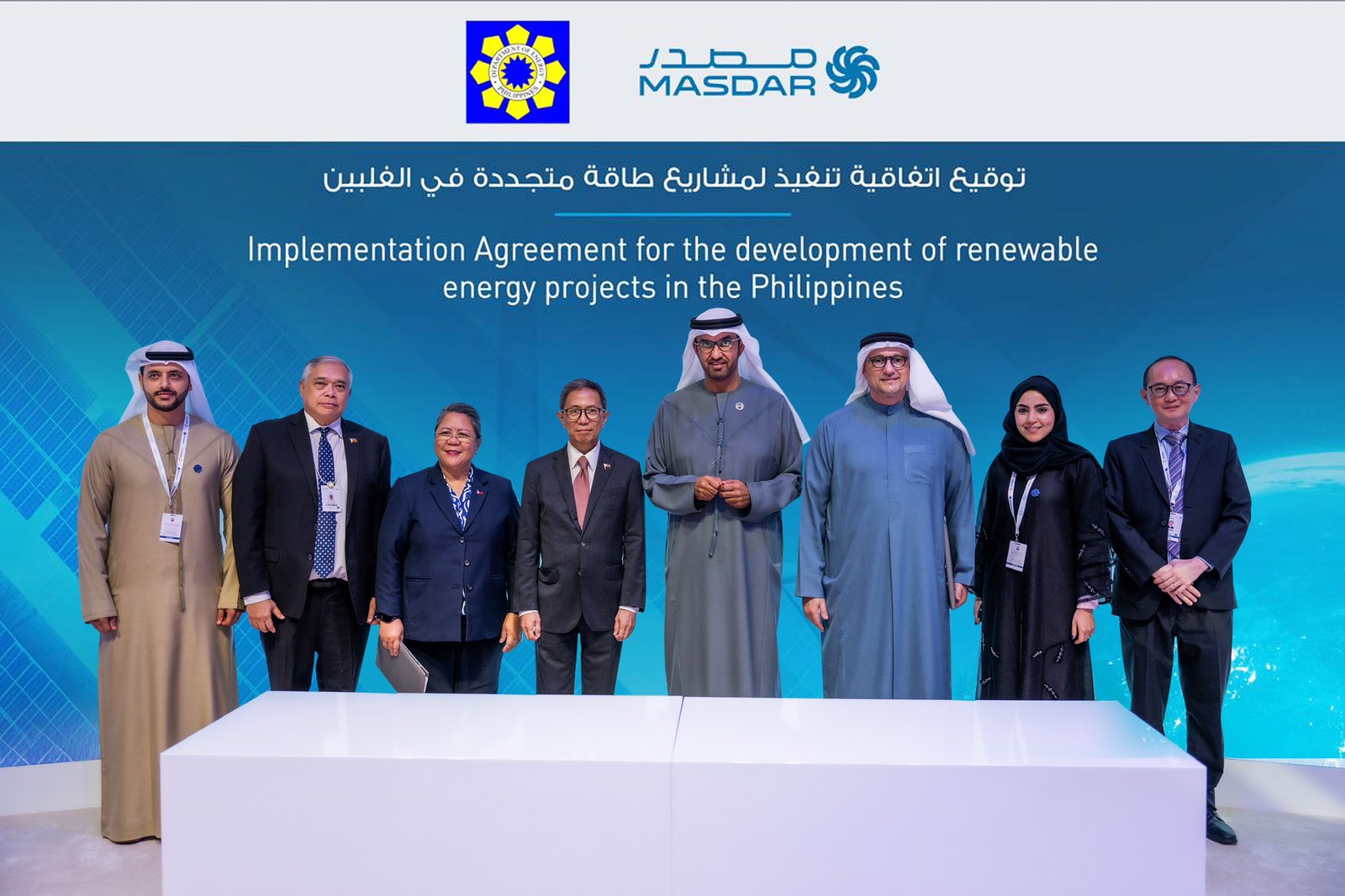DOE, UAE’s Masdar partner for 1GW of RE Projects
- January 16, 2025
- 0

The Department of Energy (DOE) and UAE-based renewable energy giant Masdar have signed a historic agreement to develop 1 gigawatt (GW) of renewable energy capacity in the Philippines by 2030, an initiative expected to attract an estimated investment of USD 15 billion.
The Implementation Agreement, finalized on January 15, 2025, during Abu Dhabi Sustainability Week (ADSW), operationalizes a Memorandum of Understanding (MOU) signed in November 2024 during President Ferdinand R. Marcos Jr.’s visit to the UAE.
The agreement aims to deploy solar, wind, and battery energy storage systems (BESS) across various regions in the Philippines, with a long-term goal of scaling up to 10 GW by the end of the decade.
Solar Energy Systems capture sunlight using solar panels and convert it into electricity. Solar energy can be harnessed at both small scales (e.g., residential rooftops) and large scales (e.g., solar farms).
Wind Energy Systems convert the kinetic energy from wind turbines into electrical energy. Similar to solar, this can be generated on both small scales (individual turbines) and large scales (wind farms).
BESS are crucial for managing the variability of renewable energy sources like solar and wind. They store excess energy generated during peak production times such as sunny or windy days to be used when energy demand is higher or when production is low.
Together, these systems can be integrated to create a more resilient and sustainable energy grid, enabling countries like the Philippines to transition from fossil fuels to cleaner energy sources while maintaining energy security and reliability.
The deal was signed by DOE Undersecretary Rowena Cristina L. Guevara and Masdar CEO Mohamed Jameel Al Ramahi, in the presence of Energy Secretary Raphael P.M. Lotilla and UAE Minister of Industry and Advanced Technology, Dr. Sultan Al Jaber.
The DOE will support Masdar in pre-development activities, such as conducting technical studies, securing necessary permits, and applying for investment incentives and tax exemptions. In turn, Masdar will lead the project’s commercial, technical, financial, and environmental development.
“This partnership with Masdar marks a transformative step in the Philippines’ renewable energy journey. Under President Marcos Jr.’s leadership, the Philippines is integrating renewable energy into its energy mix at an unprecedented scale, ensuring energy security and fostering sustainable economic growth,” Lotilla said in a statement.
Dr. Al Jaber emphasized the importance of the agreement, noting that it not only strengthens the bilateral relationship between the Philippines and the UAE but also contributes to the creation of jobs and the advancement of low-carbon economic progress. “This collaboration will help expand global renewable energy capacity,” he said.
Masdar’s entry into the Philippine market marks the company’s commitment to Southeast Asia, a region where it has already achieved notable success. Masdar’s achievements include the development of the Cirata Floating Solar PV Plant in Indonesia and its entry into the geothermal energy sector in 2023.
Masdar CEO Al Ramahi expressed confidence in the partnership, saying, “We look forward to leveraging our expertise in large-scale renewable energy projects to support the Philippines in achieving its ambitious energy goals.”
As part of its efforts to increase the share of renewables in the country’s energy mix, the DOE has also scheduled its Green Energy Auction 3 for February 11, 2025, offering opportunities for new renewable energy projects, including hydro, geothermal, and pumped storage hydro.
This collaboration with Masdar will not only enhance the country’s energy security and reduce reliance on fossil fuels but also bring substantial economic benefits, including job creation and technology transfer while positioning the Philippines as a regional leader in sustainable energy development.